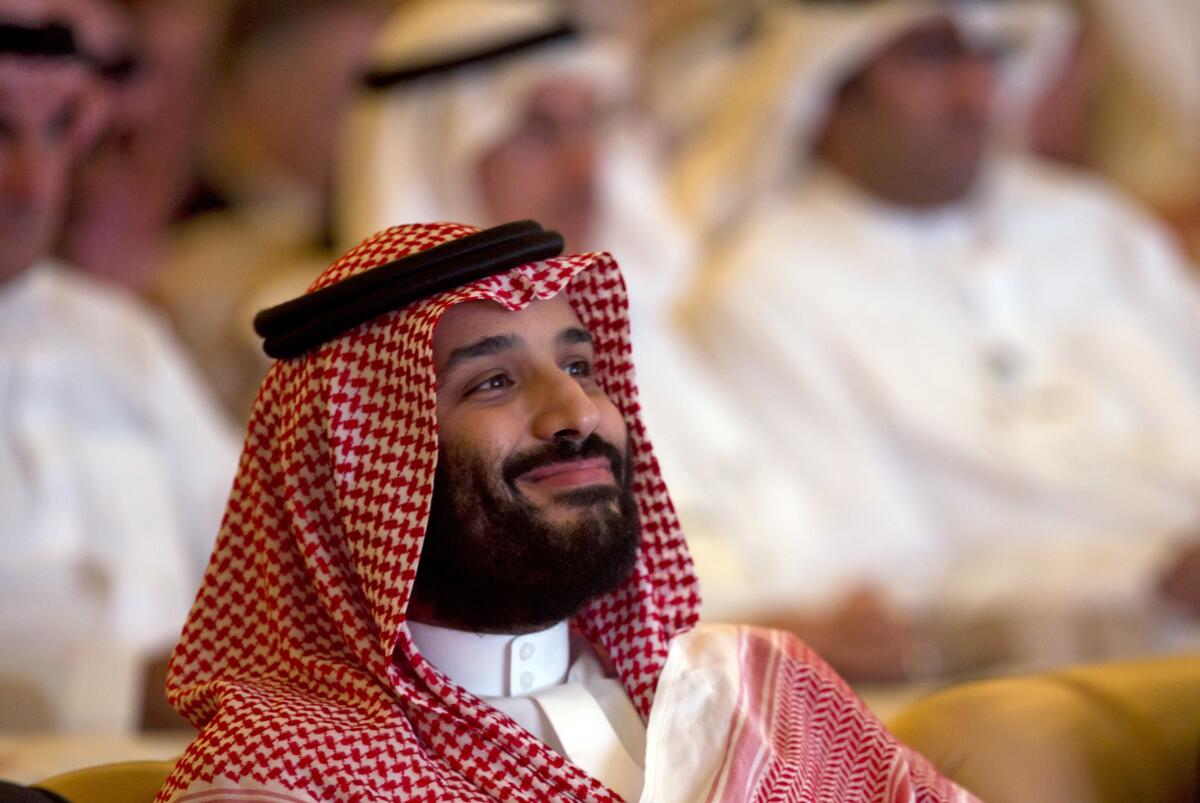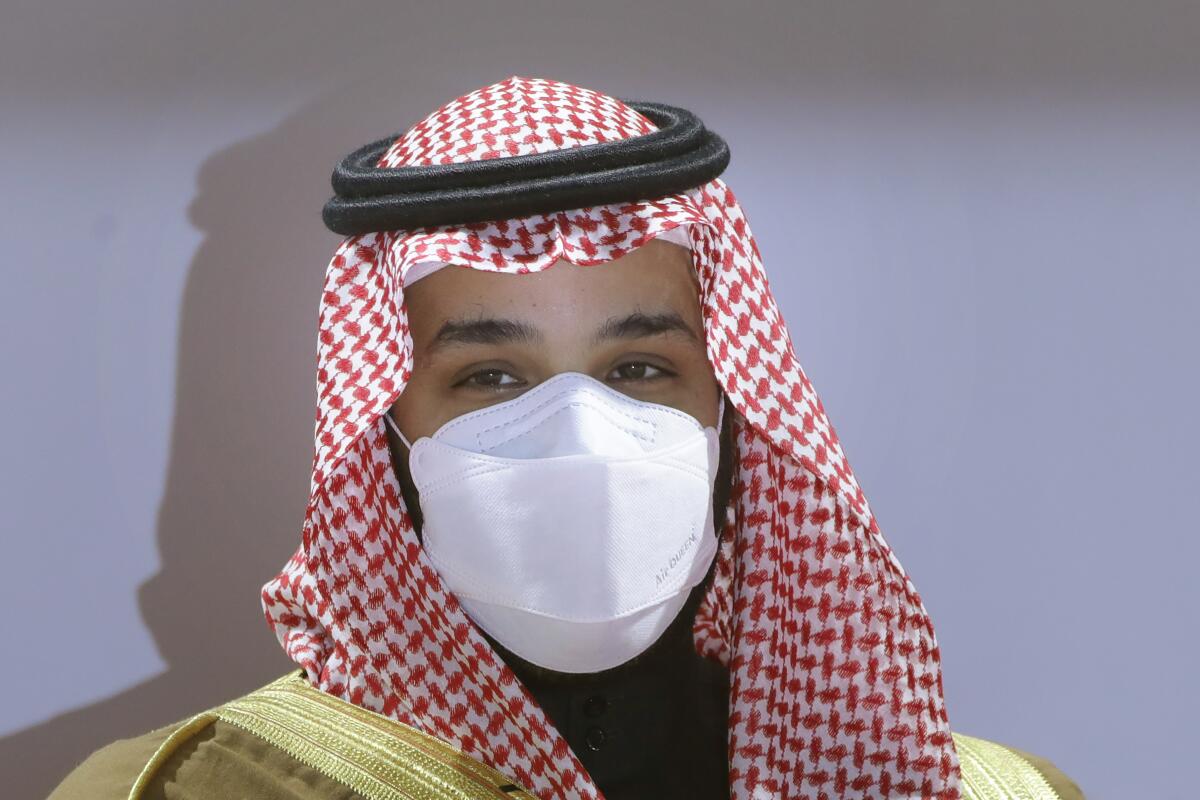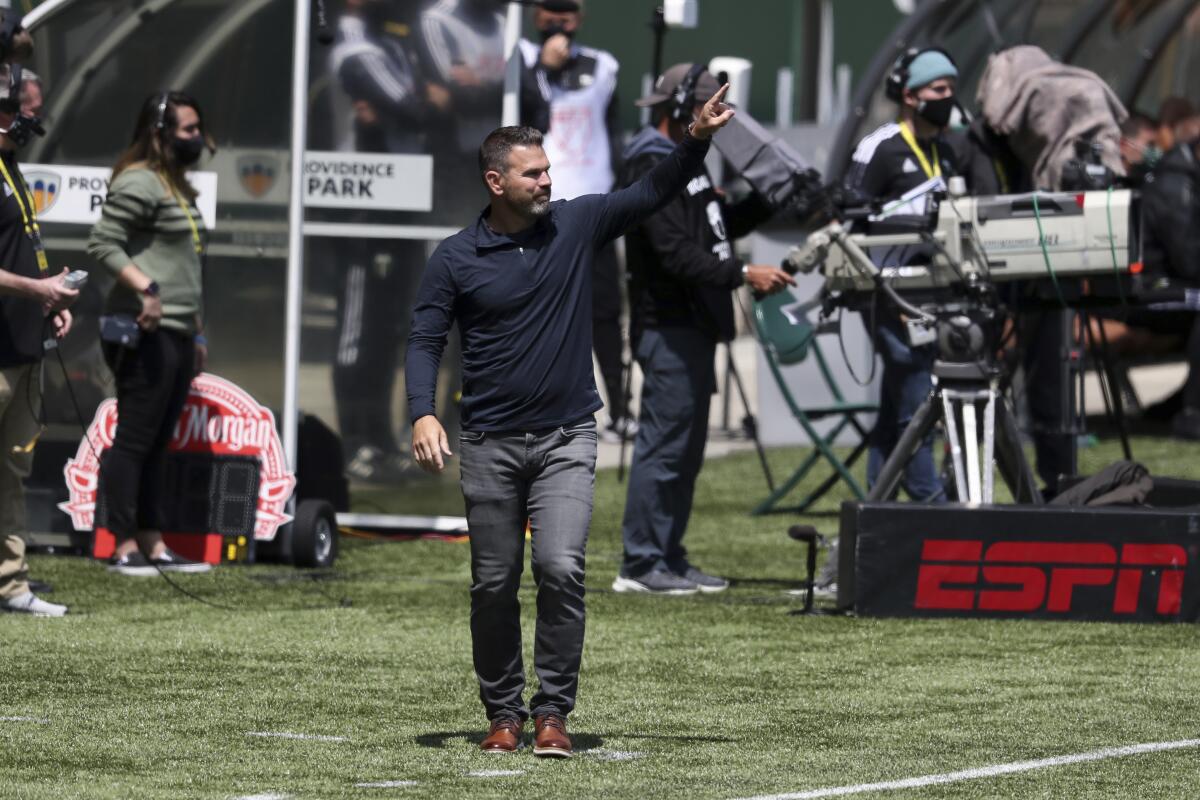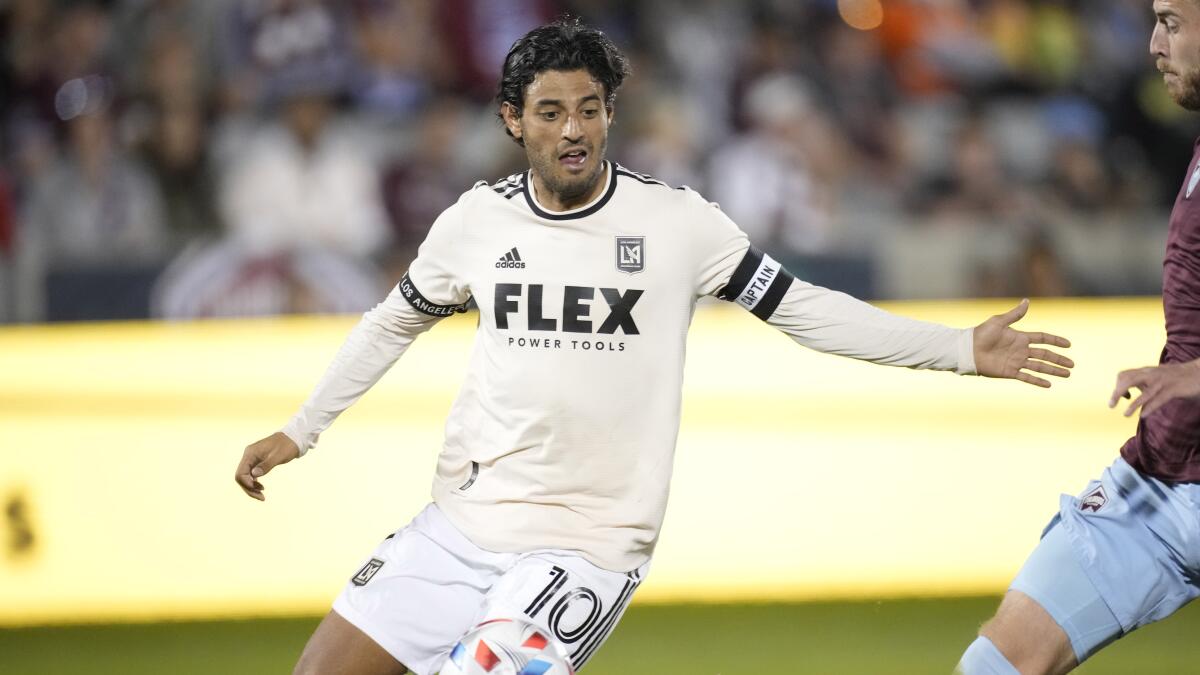Soccer newsletter: Money is still the loudest voice in the English Premier League

Hello, and welcome to the final L.A. Times soccer newsletter of 2021 (hold your applause). I’m Kevin Baxter, The Times’ soccer writer, and we start today with a visit to the English Premier League.
Although individually the top clubs in Europe are well-matched — on any given day, Bayern Munich can beat Paris Saint-Germain, for example, or Juventus could defeat Manchester City — there is little argument that, top to bottom, the Premier League is the best in the world. That’s why two of the last three Champions League finals have been all-EPL affairs featuring four different teams.
Of the eight teams to play in the last four continental championship matches, five have come from the EPL, with Liverpool making it twice. No other league has sent more than one team to the title game in that span.
“It’s unlike any other sports league in the world, let alone football league,” said Rebecca Lowe, who has spent the last nine years explaining the Premier League to U.S. fans for NBC Sports. “It’s knowing that when you go into every single game, you don’t know what’s going to happen.
“It’s a league that attracts drama. Not just every match day [but] every day, whether it’s a manager being fired, a controversial takeover or a player who’s having a tantrum. There’s always something going on.”
Enjoying this newsletter? Consider subscribing to the Los Angeles Times
Your support helps us deliver the news that matters most. Become a subscriber.
There’s a limit to that parity, of course, especially at the far ends of the league table. At the top, Manchester City, Liverpool and Chelsea have lost five of 54 matches combined, while at the bottom, Burnley, Newcastle and Norwich City have won just four of 50. Neither Manchester City nor Liverpool has lost since Nov. 7; Burnley and Newcastle have one win between them during that period.
The explanation, of course, is money. The combined payroll for the bottom three teams is less than half of what Manchester United, the league’s top-spending team, pays its players.
Deloitte’s annual money league numbers show six of the 11 richest clubs in the world play in the Premier League. And the league’s new TV contract with NBC, Lowe’s boss, is worth $2.7 billion, almost tripling the value of the previous deal.
That kind of money doesn’t come cheap, however. The price for buying into the league isn’t for the faint of heart or short of pocketbook. As a result, the EPL’s 20 teams are owned by investors and financial groups from 14 countries, among them a Chinese holding company, the Abu Dhabi royal family, and the billionaire Russian oligarch who introduced Vladimir Putin to politics.
It’s an elite if not motley group that would appear to have few requirements other than unimaginable wealth. It’s also a group that now includes the sovereign wealth fund of Saudi Arabia, the lead investor in a consortium that has taken over at Newcastle, an iconic but long-struggling club. And that investment led some around the league to question whether the EPL’s reputation has been put up for sale as well.

The league originally refused to ratify any deal that would give 80% of the club to the Saudi government of crown prince Mohammed bin Salman. Human rights groups including Amnesty International also protested the purchase, and the EPL’s other 19 clubs condemned the takeover, ostensibly because it threatened to damage the league’s brand but also because if the sale went through, Newcastle would become the richest team in the sport.
Even some supporters of Newcastle, which hasn’t won a first-division title since 1927 and last won the FA Cup in 1955, spoke out against the deal despite the fact the money of the Public Investment Fund, the sovereign wealth fund of Saudi Arabia, could make the Magpies contenders virtually overnight.
“I know Newcastle fans who are no longer Newcastle fans because they don’t want to be associated with the controversial ownership group,” Lowe said. “That’s really very difficult for fans. Imagine you’ve supported a team for 40 years and they’ve been very average. Then suddenly this money comes in. You’re uncomfortable about where it comes from. Do you give up on your team?
“It is a really hard choice to make. Your religion, which is your football team. Or your ethics.”
In the EPL, however, money speaks loudest, so most of Newcastle’s supporters made their choice, with a public opinion poll this fall finding nearly 97% approved of the sale. At about the same time, the league made its choice too: after nearly 16 months of negotiation, it decided to take the Saudi money — surprise! — and the takeover was approved in October after the EPL received assurances the Saudi government would not intervene with the PIF that funded the Newcastle purchase.
Not explained is exactly how that will work since crown prince Mohammed bin Salman runs the Saudi government and is chairman of the PIF. He presumably will be unable to consult with himself before making decisions regarding the club.
Evidence that the takeover is complete emerged earlier this month when workers at St. James Park began removing stadium signage for Sports Direct, the sportswear company run by former owner Mike Ashley.
The PIF isn’t the first investment group that has seen its politics and the source of its wealth questioned when it tried to buy its way into European soccer royalty.
French club Paris Saint-Germain is owned by the Qatar Investment Authority, the sovereign wealth fund of a tiny oil-rich country with questionable human rights practices. And Manchester City owner Sheikh Mansour bin Zayed Al Nahyan is the deputy prime minister of the UAE, an elective monarchy with a heavy-handed security apparatus, few rights for laborers and no free press. Then there’s Russian billionaire Roman Abramovich, who has owned Chelsea for nearly two decades. Abramovich has donated more of his fortune to charity than any other living Russian — more than $2.5 billion by one estimate — but he also has been tied to shady business practices in Russia and played a major role in Putin’s rise to power.
Even Liverpool, whose investors include LeBron James, is sponsored by a bank that has been accused of breaching international sanctions.
“There is a fit and proper test, which the Premier League tries to use to control who owns what clubs,” Lowe said. “But ultimately if you have enough money and you pass that test, then you can own a football club. That’s the way it works in the UK, and that’s what we’re used to. So you can’t just pick on one club, because it’s happened in many clubs.
“It’s not one rule for one, one rule for another. Everyone’s only picking on Newcastle because that’s what’s happening right now.”
The British government, after all, sells arms to the Saudis, tools the country has used to commit alleged war crimes in Yemen. That’s a lot worse than simply allowing the crown prince to pay outrageous salaries to a bunch of soccer players.
So why draw a heavy red line in blood here and now? For Lowe, the added scrutiny around the Newcastle deal is a good thing.
“My personal view is that you have to keep football and sport as clean as you possibly can,” she said. “We’ve seen too many teams go to the wall, and I don’t just mean controversial ways people make money. I mean people with bad intentions, people who are poor businessmen.
“So there has to be a test in place to try and protect these institutions.”
Alan Shearer, widely regarded as one of the best players of the early Premier League era, made more than 300 appearances for Newcastle and understands the dilemma for fans and the league. He too sees the public debate as a positive thing.
“It’s only right that we do educate ourselves,” said Shearer, who was born in Newcastle. “But you can’t blame Newcastle fans for that because for 14 years they’ve been flatlining and they’ve had no success. They’ve had no excitement, they’ve had no real entertainment. And for the first time in a long time now, they’ve got that.
“There’s been more questions asked, I think, because of what’s happened,” he continued. “And I think that can only be a good thing. The more questions are asked, the better.”
EPL can’t spend its way around COVID-19
No matter how rich its owners, the EPL is learning you can’t buy your way clear of a pandemic. Last weekend saw six of the league’s 10 scheduled games postponed because of COVID-19 outbreaks, so representatives of the 20 teams met Monday via video to discuss plans for the traditional “festive fixtures” during the holidays.
The U.K. has reported record levels of coronavirus cases over the last week, leading government officials to consider the imposition of new protective measures to deal with the surge. But the EPL has decided to push on.
According to Mike Keegan of the Daily Mail, teams must field 13 outfield players plus a goalkeeper to avoid a postponement. Should teams be unable to reach that minimum, U-21 players with first-team experience must be promoted to the game-day roster to fill out the squad.
The league released a statement saying 92% of players and club staff have received at least one vaccination dose.
Postponement of any of the popular televised holiday matches would have a significant financial impact on the league — and we know how much the EPL hates that. The effects of COVID-19, which included playing matches in empty stadiums, saw EPL revenues fall by 13% in 2019-20, according to Deloitte, the first drop in league history. More than half of the league’s teams reported a loss, but despite that, the EPL’s revenues still were 60% higher than those of its nearest European competitor.
Did the Galaxy just sell their soul?

Speaking of iconic organizations, no team in MLS has had more success than the five-time MLS Cup champion Galaxy. And Greg Vanney understands that, having helped build the club’s culture and success as a member of the original 1996 roster.
So when Vanney returned as coach last December, he promised to rebuild that culture and success. A year later, that pledge remains a work in progress.
The Galaxy missed the playoffs in Vanney’s first season, extending the franchise-record drought to seven years without an appearance in the MLS Cup final. Then last week, Vanney got rid of the final two on-field links to the Bruce Arena dynasty teams by giving defender Daniel Steres to the Houston Dynamo in exchange for a third-round draft pick — the Galaxy didn’t even use their third-round pick in the 2021 SuperDraft — and selling national team midfielder Sebastian Lletget to the New England Revolution for at least $500,000 in allocation money. With incentives, the deal could bring the Galaxy as much as $1.3 million.
Even so, the trade, which was contemplated for months, could prove costly to the team while for Arena, now coach and general manager in New England, taking Lletget from the Galaxy is just the latest poke in the eye of his former club. For Vanney, meanwhile, rebuilding the franchise’s culture apparently begins by starting over: He brought in 18 new players last season, when the team finished 13-12-9 and missed the playoffs for the fourth time in five years. And at least nine players from that team won’t be back next year.
With this month’s trades and the decision not to re-sign captain Jonathan dos Santos, the team shed 401 games of regular-season experience in a Galaxy uniform. (Also gone with the three departures is more than $3.3 million in salary.)
Of the players remaining only Efraín Álvarez, 19, and Julián Araujo, 20, who made their MLS debuts in 2019, have played more than two seasons with the Galaxy. No one left on the roster has appeared in a playoff game with the team.
Whatever ties the roster still had to its glorious past when Vanney arrived are gone. If next season started tomorrow, the Galaxy’s likely starting lineup would include six players from Europe or Africa, four of whom have less than one year of MLS experience.
The departure of Dos Santos, who is expected to join Club América of the Liga MX in the coming days, also cleared a designated player spot in addition to $2 million in salary, resources the Galaxy are considering using to bring back forward Cristian Pavón, who had 13 goals and 15 assists in 33 games with the team in 2019-20. He also appeared in two playoff games for the Galaxy.
However, the competition for Pavón, who played for Argentina in the last World Cup, has increased markedly this winter. The team said it remains interested and continues to discuss a deal with Pavón “among other options.”
But even if the Galaxy re-sign Pavón — which could be a risky move, given the player’s legal troubles in Argentina — it’s clear Vanney has decided the quickest way to rebuild the Galaxy is by razing the foundation and starting anew. It worked with Arena, who inherited a dreadful team in 2008, completely remade the roster that winter and went on to play in four of the next six MLS Cup finals.
But Arena kept two cornerstones — captain Landon Donovan and midfielder David Beckham — on which to rebuild. Vanney is starting almost from scratch. How that impacts the project remains to be seen.
It’s just like starting over for LAFC as well

Despite all the changes, the Galaxy look like a model of consistency compared with rival LAFC. Not only did Bob Bradley, the only manager the team has known, depart last month, but with last week’s loan of midfielder Eduard Atuesta to Brazil’s Palmeiras, the team has just three players left from its original roster in 2018.
That number could fall further if general manager John Thorrington’s decision to pick up forward Carlos Vela’s contract option through June proves to be the precursor to a sale or transfer.
Vela, the team’s first signing, made a league-high $12.6 million over the last two seasons but played in just 27 of the team’s 56 regular-season games. The team captain, who will be 32 next season, has expressed an interest in pursuing offers overseas but reportedly is in talks with LAFC over a contract extension. Unless he agrees to a substantial cut in pay — which reportedly is part of the talks — it makes little sense for Thorrington to bring him back long-term during what figures to be an ongoing remake of the LAFC roster.
Beginning with the July trades of Corey Baird and Mark-Anthony Kaye, LAFC has parted ways with several starters over the last five months, among them forward Raheem Edwards and goalkeepers Pablo Sisniega and Jamal Blackman, whose contracts expired, and 2020 Golden Boot winner Diego Rossi, who was loaned to Turkish club Fenerbahçe.
Over the same span, the team has added forwards Cristian Arango and Ismael Tajouri-Shradi and defenders Franco Escobar and Sebastien Ibeagha. If the loan for Rossi, who has two goals and five assists in 13 games in Turkey, becomes permanent, LAFC would have a designated player spot to aid in that makeover; two DP spots if Vela also leaves.
Hiring a manager to help shape the team’s transformation is the most pressing matter for Thorrington at the moment. Among the names linked to the search for Bradley’s replacement are Juan Carlos Osorio, the former Mexican national team manager now coaching in Colombia; Argentine Antonio Mohamed, a longtime manager in Mexico’s Liga MX; and Portugal’s Renato Paiva, who is coaching in Ecuador.
But the team also has two strong in-house candidates in Steve Cherundolo, coach of LAFC’s USL Championship affiliate, and Ante Razov, who was Bradley’s top assistant.
And finally there’s this …
Angel City, which will begin play in the NWSL next year, continued building out its first-ever roster Monday by signing Japanese national team player Jun Endo to a two-year contract with a third-year option and adding nine others last week in two trades and a pair of drafts. ACFC took Illinois midfielder Hope Breslin, Duke midfielder Lily Nabet and Hofstra forward Miri Taylor in the regular league draft after selecting midfielder Dani Weatherholt (from the OL Reign), forwards Claire Emslie (Orlando) and Jasmyne Spencer (Houston), and defender Paige Nielsen (Washington) in the expansion draft. The team also acquired midfielder Savannah McCaskill in a trade with Racing Louisville and goalkeeper Brittany Wilson from Orlando. The expansion team now has 18 players on its roster, including national team mainstays Julie Ertz and Christen Press.
A programming note
Serie A and Ligue 1 are about to join the Bundesliga on short winter breaks. That sounds like a pretty good idea to us, so we’re going to go dark for the rest of the year as well and will return to your inbox — or on the latimes.com web page, whichever you prefer — on Jan. 11. That should give us plenty of time to prepare for the resumption of World Cup qualifying late next month.
Until then, happy holidays!
Podcast
Don’t miss my weekly podcast on the Corner of the Galaxy site as co-host Josh Guesman and I discuss the Galaxy each Monday. You can listen to the most recent podcast here.
Quotebook
“Just want to say thank you and congratulations to the player pool for their effort in 2021. We used a lot of different players in 2021. We had a lot of different programming. We played 10 months of the 12 months. So it was fast and furious. But the guys hung in there. And in the end, we have something to be proud of.”
USMNT coach Gregg Berhalter after Saturday’s win over Bosnia and Herzegovina, the team’s 17th victory in 2021, a single-year record for a men’s national team that also won two trophies
Until next time...
Stay tuned for future newsletters. Subscribe here, and I’ll come right to your inbox. Something else you’d like to see? Email me. Or follow me on Twitter: @kbaxter11.
Go beyond the scoreboard
Get the latest on L.A.'s teams in the daily Sports Report newsletter.
You may occasionally receive promotional content from the Los Angeles Times.




